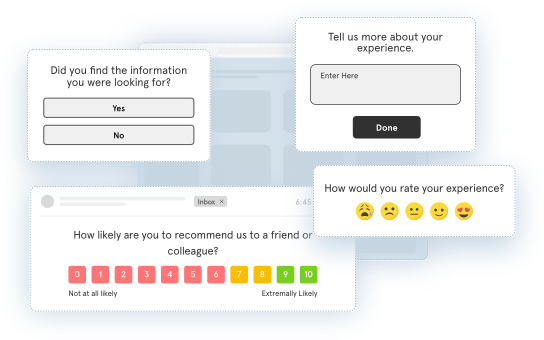The ability of a business or organization to hold onto its clients for a predetermined amount of time is referred to as client retention. It covers the tactics and measures businesses use to lower customer churn or defection rates.
Since acquiring new customers frequently costs more than keeping existing ones, a company’s profitability is impacted by a high client retention rate, which denotes satisfied customers.
Developing worthwhile services, fostering close bonds with customers, and offering first-rate customer service are all examples of successful client retention tactics.
Since a company’s client retention rate is a major component of its overall business strategy, it is imperative that it be tracked and that it be continuously improved.

Why is client retention important?
1. Set and fulfil customer expectations: A key component of any successful business is client retention. It speaks to a business’s capacity to hold onto current customers and entice them to return for more services or goods.
Client retention is crucial because, as is commonly believed, it is simpler to keep an existing client than to find a new one.
In addition to being a source of income, a devoted customer can serve as a brand ambassador and help draw in new business by spreading good word of mouth.
Furthermore, keeping existing customers can save a business time and money that would otherwise be spent looking for new ones. In addition, maintaining a clientele is crucial for the development of a solid and steady clientele.
A company can build a devoted customer base that generates a consistent flow of income by satisfying customers and encouraging them to come back for more.

2. Build trust Through relationships: An essential part of any flourishing company is customer retention. It entails cultivating a solid rapport with the clients and making sure they stay in business with you.
A method to accomplish this is by establishing and meeting client expectations. This implies that you must express to your clients exactly what they can anticipate from your services, and you must then make a consistent effort to live up to their expectations.
By doing this, you draw in new clients through recommendations and favourable reviews, in addition to keeping your current client base.
Building a strong and sustainable client relationship is essential for all businesses. This not only helps retain existing clients but also attracts new clients through positive word of mouth.
The key to building trust through relationships is understanding your clients needs and expectations.
To foster a sense of trust and credibility, it is very important to establish clear communication channels and maintain consistent communication with clients.
Building trust takes time, effort and consistency, but the rewards are priceless.

3. Collect unbiased feedback: Client retention is one of the most important aspects of a successful business. If you want to keep your customers happy and loyal to your company, you need to understand what their wants and needs are.
One of the best ways to do this is to collect unbiased feedback from your clients. You can do this by sending out surveys or customer feedback forms.
You can send them via email or social media. You can even send them to your in-store location. Make sure that the questions you ask are unbiased and don’t lead the clients to a specific answer.
This way, you can be sure that the feedback you receive is honest and correct.
It’s also important to include questions that are open-ended so that your customers can freely express their opinions.

4. Contact your client first before they consult you: As a business owner, one of the most important things you can do to retain your clients is to build strong relationships with them.
One of the best ways to do this is to proactively reach out to your clients before they reach out to you.
This way, you can show your commitment to their satisfaction and let them know that you care about their business.
It also gives you the chance to address any issues before they escalate, saving you and your client both time and hassle.
5. Share valuable content: It’s critical for businesses to not only draw in new customers but also hold onto their current clientele in the fast-paced, fiercely competitive business world of today.
Regularly sharing insightful content through interaction is one efficient strategy to increase client retention. This entails actively engaging clients in purposeful conversations, whether via email marketing, social media, or in-person meetings.
Businesses can demonstrate their industry knowledge and expertise to their clients and build a strong relationship with them by doing this.
Additionally, interaction with customers enables two-way communication in which companies can learn important information and feedback from their customers.
Higher client satisfaction and loyalty can result from using this feedback to enhance goods or services. By continuously disseminating insightful content

6. Develop a frequent communication calendar: Businesses can begin by comprehending the requirements and preferences of their clients in order to formulate a regular communication plan for client retention.
Surveys, feedback forms, and even one-on-one conversations can be used for this. Businesses can effectively meet client expectations by customizing their communication efforts based on their knowledge of them.
The next step is to figure out which communication channels are best for each individual client.
Some people might prefer email, while others might prefer phone conversations or in-person meetings.
Businesses may make sure that their message are received by their customers and give them a sense of value and attention by utilizing their preferred mode of communication.

7. Learn from customer complaints: Client protests are in many cases seen as an irritation or a negative part of maintaining a business. However, these grievances have the potential to be a useful tool for increasing customer retention.
At the point when clients set aside some margin to voice their disappointment, it gives an open door to organizations for learn and move along.
By standing by and listening to their interests and tending to them quickly, organizations can show their clients that their fulfilment is a main concern.
This assists with holding the miserable client, however it likewise makes a positive picture for the business, possibly drawing in new clients through verbal.
Furthermore, effectively searching out and addressing client protests can assist with recognizing normal issues or examples, and to considering proactive answers be carried out to forestall future grievances.
Eventually, carving out opportunities to gain from client grumblings can prompt superior consumer loyalty and dependability, at last prompting a more grounded and more fruitful business.

READ MORE: https://brandgaytor.com/how-you-can-leave-an-impact/
Conclusion
To sum up, keeping customers happy is an essential component of any flourishing company. In addition to contributing to the preservation of a steady clientele, it also fosters greater profitability and expansion. Prioritizing the needs and contentment of current customers helps businesses build robust, enduring relationships that can endure any difficulties.
FAQ (frequently asked questions)
Q1: What is client retention?
A: Client retention refers to the ability of a business to keep its existing clients over a period of time, fostering long-term relationships.
Q2: Why is client retention important?
A: Retaining clients is vital for sustained business success as it often costs less to keep existing clients than to acquire new ones. Additionally, loyal clients can become advocates for your business.
Q3: How can businesses improve client retention?
A: Providing excellent customer service, personalized experiences, and consistently delivering value are key factors in enhancing client retention.
Q4: What role does communication play in client retention?
A: Effective communication, both proactive and responsive, is crucial. Regular updates, addressing concerns promptly, and seeking feedback help build trust.
Q5: Is client satisfaction the same as client retention?
A: While satisfaction is important, retention goes beyond that. It involves maintaining a lasting relationship, anticipating needs, and creating ongoing value for clients.

Add a Comment